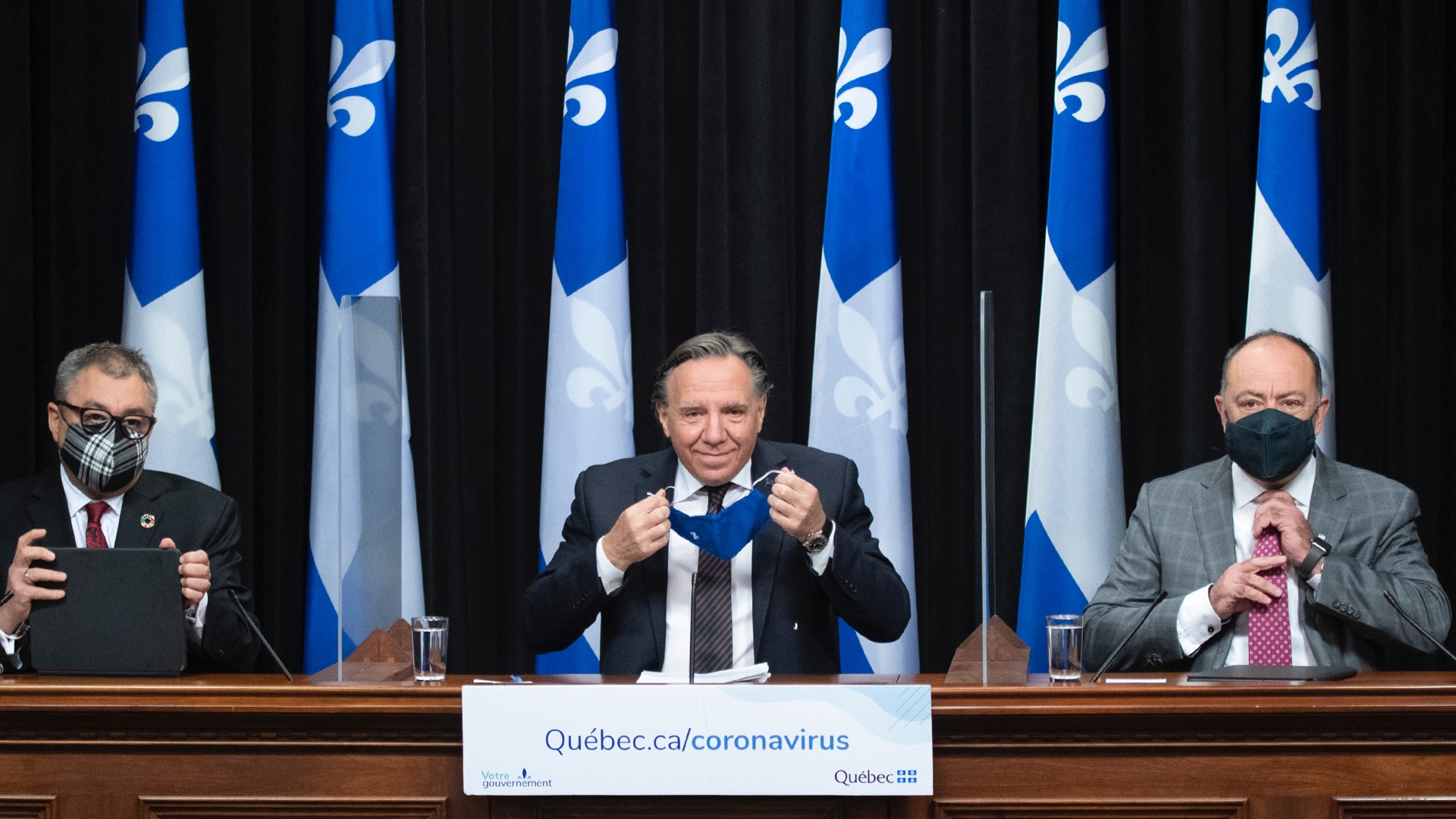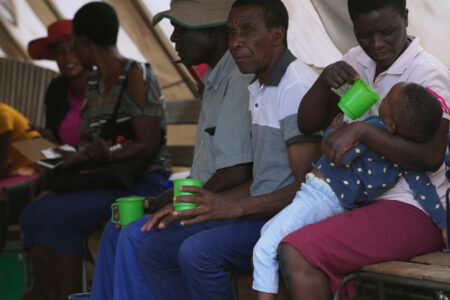
Version française disponible ici.
This is the second of two articles on pandemic management in Quebec.
Is scientific communication, and the policies that depend on it, affected by political imperatives? This question has been raised many times in Quebec in recent years.
Our research on the pandemic shows that the influence of experts depends on public support, and that this influence is not exerted in a purely rational context where no other forces intervene. In practical terms, this raises the question of how political actors influence scientific communication.
Comparisons with Belgium, Sweden and Switzerland show that in Quebec, scientific recommendations transmitted to decision-makers have been, more than elsewhere, under political control. In addition, political decision-makers have retained close control over the communication of recommendations made to them by public health, resulting in limited transparency of the scientific information underpinning decisions.
Quebec: public health subordinate to politics
In Quebec, public health is directly subordinate to the Ministry of Health and Social Services (MSSS) in such a way that the experts at the Institut national de santé publique du Québec (INSPQ), or even the director of public health – who is also an assistant deputy health minister – cannot communicate publicly in an autonomous and transparent way.
In other countries, a more transparent and proactive approach, centred around public health agencies, has enabled the public and external stakeholders to be more involved in decision-making. For example, by publicly acknowledging the lack of solid scientific evidence to justify closing schools at the start of a pandemic, the Swedish public health agency sparked a major debate.
In Quebec, the communication of public health recommendations has been tightly controlled by the political authorities, so the evidence that would or would not have justified a given measure was not debated as much in the public space.
Some expert recommendations were, in fact, made public in Quebec. However, they were cursory at best, and sometimes did not clearly justify important measures such as curfews.
The subordination of expertise to politics meant that public health recommendations were presented to the crisis unit headed by the premier, and that no one outside the unit was involved in deliberations. In Quebec, therefore, there was no clear separation between experts and decision-makers.
Switzerland: an independent task force
In Switzerland, by contrast, the group of experts formally mandated by the government to advise it on pandemic measures did not come from a government agency or ministry. The Swiss COVID-19 science task force was set up on the initiative of experts and academics.
A fundamental difference with Quebec was that the Swiss task force recommendations were formulated outside decision-making circles and systematically made public, which had the effect of highlighting disagreements between experts and political decision-makers, while at the same time encouraging public debate on pandemic management.
There are explanations for the reluctance of political decision-makers to be transparent. In a democracy, it is up to elected representatives to decide on the basis of multiple considerations, of which expert opinion and scientific evidence are only two parts. What’s more, elected decision-makers are often criticized when they decide against expert advice, even when they have legitimate reasons for doing so.
In Belgium, a country hard hit by COVID-19, decision-makers had to deal with a complex federal political context. The advice from experts – which was communicated more freely than in Quebec – sometimes clashed with political decisions, which leaders struggled to justify.
It is therefore understandable that, in the context of a crisis such as COVID-19, Quebec decision-makers wanted to withhold any scientific information that might contradict their decisions. This was not the best approach.
The consequences of limited transparency
First, the limited transparency in Quebec may have contributed to the population’s fatalism. When it came to increasing the severity of health measures, tight control over scientific information enabled decision-makers to transmit wave after wave of unified alarmism, despite uncertainty in the evidence.
In contrast, greater transparency would have brought forward greater diversity of evidence. Some would have been more alarmist, and some less so, but it would have fostered public reflection and expert debate on the need to increase the severity of measures.
This is precisely what happened in Sweden. Encouraged to form a free and informed opinion, the Swedish public seemed to be less prone to fatalism, in particular by placing confidence in their fellow Swedes ahead of supporting tougher measures.
In Quebec, faced with a body of evidence strategically communicated by decision-makers and leaving little room for choice, the population could only become indifferent over the long run. This indifference contributed to reduce support for measures, and with it the influence of experts.
Second, the lack of transparency is likely to have contributed to harmful over-reactions. The control of scientific information accentuated certain biases in the public, including negative feelings and fear, which decision-makers used to gain acceptance for severe measures.
Greater transparency could have reduced the influence of these biases, since the presence of contradictory evidence would probably have encouraged more informed and balanced reasoning.
The wrong long-term strategy
From a strategic point of view, the use of negative feelings by Quebec decision-makers, facilitated by their control of scientific information, worked well. The proof is in the high level of public support up to the fifth wave.
However, from the fifth wave onward, the public became indifferent – or even desensitised to fear management – and eventually gave up. Decision-makers adjusted health measures accordingly, reducing their severity at a time when projections were pointing to major difficulties for hospitals.
In times of crisis, however, transparency about scientific information that informs decision-makers seems to have produced more balanced decisions.
Between Sweden, Switzerland and Belgium, Quebec ranks second in terms of the overall severity of health measures. Between March 2020 and March 2022, the average severity index was 54.8 in Belgium, followed by 52.9 for Quebec, 50.4 for Switzerland and 45.4 for Sweden.
However, Quebec surpassed all these countries in resorting to the most severe of measures on more than one occasion, most notably a curfew. As Figure 1 shows, the severity index in Quebec reached 83.4 in December 2020, a level never reached in Sweden, Switzerland or even Belgium.
Switzerland and Sweden opted for more voluntary approaches, after considering the adverse effects of stricter measures. Conversely, Quebec, which was stricter, seems to have been much more sensitive to the risk of propagation. This has not helped Quebec perform better than Sweden or Switzerland (Figure 2).
Transparency can have a cost. By increasing the possibility that contradictory evidence is available to the general public, there is a risk of reducing public support for the decisions made by elected representatives. However, the reality is that scientific knowledge is not always homogeneous or certain, especially when it concerns something as new as COVID-19.
Scientific knowledge is established by debates based on contradictory evidence aimed at establishing veracity. No matter the level of political control over scientific information, those debates will be brought to public attention, sooner or later.
If these debates were deliberately hidden, it only served to reduce public trust and increase the likelihood people feel manipulated. The logical consequence is a reduction in the influence of experts in the eyes of the public, and during the formulation of public policy. The consequences will be felt well beyond the pandemic itself.
Also in this series :
Was COVID-19 managed based on science, public opinion or the emotions of decision-makers?










